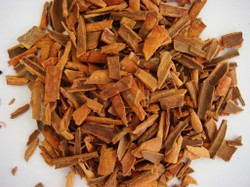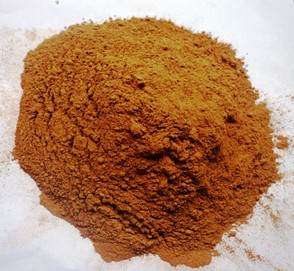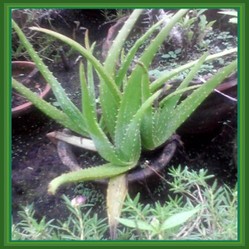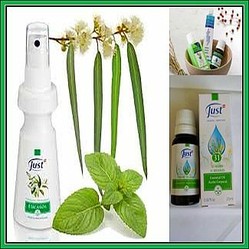The scent of cinnamon is unmistakeable. It conjures up images of hot cinnamon buns fresh out of the oven. Or perhaps for you, it takes you back to those days when Mom would serve hot oatmeal on a cold winter's day. For me, it evokes memories of those frosty cold evenings when we serve mulled apple cider for comfort. Put aside the memories, and read on to learn how wonderful cinnamon is for our body.

Healing Benefits of Cinnamon
by KalMid
Did you know the cinnamon you put on your oatmeal this morning has many healing benefits?
Brief History Of Cinnamon
Cinnamon, true cinnamon (Cinnamonum verum) is native to the island of Sri Lanka. A close relative, Chinese cinnamon (Cinnamonum cassia) from China and Indonesia is what most people use in their homes.
Throughout history, cinnamon has been extensively used. The ancient Egyptians prized cinnamon as an essential ingredient to their embalming mixture of herbs. Moses used cinnamon oil as holy anointing oil. During the first century of Rome, cinnamon was more expensive than silver. Only the wealthy could afford this expensive herb.
During the 16th and 17th centuries, the expansion of Europe made the spice more widely available and affordable.
Cinnamon and Diabetes
Many research studies over the last few years have shown cinnamon can help stabilize blood sugars in diabetic patients.
The bark is used because of the polyphenol compound that it contains. This natural occurring chemical is found in cassia cinnamon. The compound seems to affect insulin receptors and aid in the formation of glycogen, otherwise known as stored sugars.
To help control your diabetes, you may simply add one teaspoon of cinnamon to your diet each day. Be sure that it is cassia cinnamon.It is the cassia cinnamon that works. Many of the cinnamon's that are sold in the store are not.To do this, you could add it to your coffee, tea, or other beverages.
Here's a simple recipe to help get cinnamon into your diet.
- 1 teaspoon cinnamon
- 16 ounces of water
- juice of one lemon
- 1 tablespoon stevia herb (the real herb)
Pour the ingredients into a pan. Gently warm the ingredients. Let cool, and strain. Pour into a cup or bottle. Drink throughout the day. It can be drank warm or chilled.
Alternatively, there are cinnamon capsules available at health food stores. They range is dose and suggested use, so it is important to follow the directions on the box. It is normally taken in divided doses throughout the day.
Cautions of Cinnamon
While cinnamon is a wonderful healing herb, there are some cautions to using it medicinally. The oil can cause a rash in some people. Dilute it properly.
Cinnamon contains a small amount of coumarin, which is a natural blood thinner. Those taking blood thinning medications should use cinnamon only under the care and supervision of a health care practitioner.
If using for blood sugar control, blood sugar levels should be closely monitored to avoid unsafe lowering of blood sugar.
Cinnamon should not be used by pregnant women, as it is a uterine stimulant, and can cause a miscarriage. Cinnamon can be toxic if taken in excess. Be sure to follow your health care providers dosage.
Never take the essential oil internally.
The Many Uses of Cinnamon
Traditionally, cinnamon is used for digestive complaints. It can help dispel gas and tone the lining of the stomach. It is a carminative herb, which helps aids in digestion
Cinnamon is also a very good home remedy for a cold, flu or chest infections. It is used frequently by herbalists to help with a cough. Cinnamon helps to loosed the phlegm, which makes it easier for the body to expel it. It is a great antiseptic and antiviral herb. Most times, cinnamon would be combined with other herbs.
Japanese use it to prevent ulcers. This is due to the antimicrobial action of cinnamon. Many ulcers are caused by bacteria.
Cinnamon essential oil can be used as an antibacterial cleaner. Mix equal parts of water and hydrogen peroxide into a bottle. Add 10 -20 drops of cinnamon essential oil to the mix. The amount will depend on how large a bottle you are using. Shake it gently. Use it to clean counters, sinks, and other areas where germs are present.
Due to it's warming properties, cinnamon can be used to promote sweating. This can be helpful during some ailments.
You might also like
Amazing Aloe Vera Health Benefits and Herbal Home RemediesI have always preferred the usage of herbs and home remedies for small burns,...
The Unique 31 Herbal Oil Review for Headaches and Pain ReliefA unique and spectacular 31 herbal oil from Just Swiss for excruciating and u...




 Culinary and Medicinal Uses For Lemon Balmon 11/18/2012
Culinary and Medicinal Uses For Lemon Balmon 11/18/2012


Comments
katiem2, thanks for reading. I add cinnamon to my oatmeal, and sometimes even my coffee.
I've been hearing about cinnamon lately, most recently Dr. Oz talked about the benefits of adding cinnamon to your daily routine. He does however go so fast that it's hard to take note. I'm thrilled to have ran across your detailed article. Thanks :)K
I've never had mulled wine. What is put in that?
Hi again Kathy, I'll have to look hard and find cider here in Romania. And then will make mulled cider the way you say. It's slightly different than my mulled wine recipe.
Yes, you are correct. Too much cinnamon can make you sick. That is why I put that in the "warnings". Mulled apple cider is quite easy. Take apple cider, add some cinnamon, anise, ginger, and clove and simmer on the stove for about 20 minutes. You can use apple juice, but it doesn't have quite the same taste. Some places sell the mulling spices all blended. Thanks for stopping by.
I didn't know cinnamon helps control diabetes -- great advice, although I read somewhere that you shouldn't have too much cinnamon either. A
And mulled apple cider! It must be truly terrific. How do you make yours?